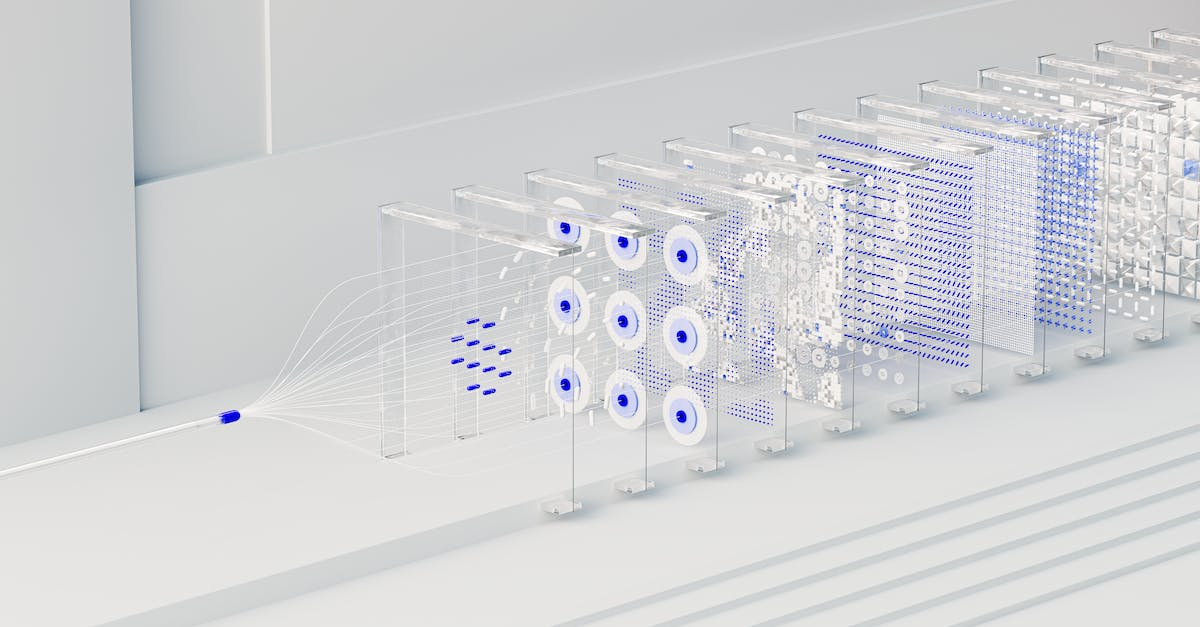Introduction to Clinical Research Roles
Introduction to Clinical Research Associate, Assistants and Coordinators
Clinical research is a branch of medical science that involves the study of human participants to evaluate the safety, effectiveness, and side effects of new drugs, medical devices, diagnostic tools, and treatment regimens. It plays a crucial role in advancing medical knowledge and improving patient care.
In the field of clinical research, several key roles contribute to the successful implementation and execution of studies. These roles include the Clinical Research Associate (CRA), Clinical Research Assistant (CRA), and Clinical Research Coordinator (CRC). Each role has distinct responsibilities that contribute to the overall functioning of clinical trials.
The Clinical Research Associate (CRA) is responsible for ensuring the trial is conducted in accordance with Good Clinical Practice (GCP) guidelines and applicable regulations. They play a vital role in monitoring the progress of clinical trials, verifying data accuracy, and ensuring participant safety. CRAs may also assist in site selection, protocol development, and the preparation of study documents. Their attention to detail and ability to adhere to strict protocols are essential for maintaining data integrity and regulatory compliance.
The Clinical Research Assistant (CRA) provides support to the research team by performing administrative tasks and assisting with various aspects of the study. Their responsibilities may include data entry, scheduling participant visits, maintaining study files, and assisting with regulatory submissions. CRAs play a crucial role in ensuring smooth operations and effective communication among team members, participants, and site staff.
The Clinical Research Coordinator (CRC) is responsible for managing all aspects of a clinical trial at the study site. They work closely with investigators, study sponsors, and participants to ensure the study is conducted smoothly. CRCs are involved in participant recruitment, obtaining informed consent, collecting and managing study data, and coordinating study visits. They also play a key role in ensuring compliance with study protocols and regulatory requirements. Their organizational skills, attention to detail, and ability to multitask are vital for the successful coordination and execution of clinical trials.
All three roles - CRA, CRA, and CRC - are essential in clinical research and drug development. They work together to ensure the integrity, safety, and success of clinical trials. By adhering to regulatory guidelines, monitoring data accuracy, and coordinating study activities, these professionals contribute to the generation of reliable data that informs medical decision-making and ultimately leads to the development of new and improved treatments for patients. Their collective efforts help bridge the gap between research and medical practice, making them integral to the advancement of healthcare.
Deep Dive: Clinical Research Associate
A Clinical Research Associate (CRA) plays a crucial role in clinical research and drug development by ensuring the highest quality and ethical standards are maintained throughout the process. Their primary responsibility is to monitor and manage clinical trials conducted at various research sites. Let's delve deeper into their role and responsibilities:
1. Site Selection and Initiation: CRAs participate in the selection of suitable research sites for conducting clinical trials. They assess the capabilities and resources of potential sites to ensure they meet the study requirements. Once a site is selected, CRAs initiate the trial by preparing essential documents, obtaining regulatory approvals, and training site personnel.
2. Site Monitoring: CRAs conduct regular visits to the research sites to ensure compliance with the study protocol, applicable regulations, and Good Clinical Practice (GCP) guidelines. They verify the accuracy of data collected, assess participant safety, and review study documentation. CRAs also address any issues or deviations promptly to maintain the integrity of the trial.
3. Data Collection and Management: CRAs ensure accurate and timely collection of trial data by reviewing source documents, case report forms (CRFs), and electronic data capture systems. They verify the completeness and quality of data and assist site personnel in resolving data discrepancies. CRAs play a crucial role in data management, ensuring data integrity and adherence to data protection regulations.
4. Regulatory Compliance: CRAs ensure that all trial-related activities, documentation, and data management follow applicable regulatory requirements and guidelines. They assist sites in obtaining and maintaining necessary regulatory approvals and ensure that the informed consent process is conducted correctly. CRAs also work closely with ethics committees and regulatory authorities during inspections and audits.
5. Safety Reporting: CRAs monitor and report adverse events (AEs) and serious adverse events (SAEs) occurring during the trial. They ensure that safety reporting is done accurately and in a timely manner, both to the site and the appropriate regulatory bodies. CRAs also assist in the management of safety events and collaborate with the sponsor and investigators to ensure participant safety.
6. Collaboration and Communication: CRAs serve as a vital link between the sponsor, the research site, and other stakeholders involved in the trial. They maintain effective communication by providing study updates, addressing queries, and providing guidance to site personnel. CRAs also facilitate training sessions and workshops to enhance site performance and ensure adherence to the study protocol.
Overall, Clinical Research Associates contribute significantly to the clinical research and drug development process by ensuring that trials are conducted ethically, efficiently, and in compliance with regulations. Through their monitoring, data management, and regulatory expertise, CRAs help maintain the quality and integrity of clinical trial data, ultimately contributing to the development of safe and effective treatments for patients.
Deep Dive: Clinical Research Assistant
The role of a Clinical Research Assistant in clinical research and drug development is crucial to the overall success of the process. They play a vital role in assisting with the planning, implementation, and coordination of clinical trials. Here are some specific responsibilities that a Clinical Research Assistant typically undertakes:
1. Study Protocol Development: Clinical Research Assistants assist in the development of study protocols, which outline the study objectives, methodology, and procedures. They work closely with the research team to ensure that the protocol is in compliance with regulatory guidelines.
2. Participant Recruitment: Clinical Research Assistants are responsible for recruiting eligible participants for clinical trials. They collaborate with healthcare providers, advertise studies, and screen potential participants to ensure they meet the inclusion and exclusion criteria.
3. Informed Consent Process: They help facilitate the informed consent process by explaining the study details, risks, and benefits to potential participants. Clinical Research Assistants ensure that participants fully understand the study before obtaining their informed consent.
4. Data Collection: Clinical Research Assistants collect data throughout the study, which may include medical history, vital signs, laboratory test results, and adverse events. They meticulously record and maintain accurate and complete records to ensure data integrity.
5. Study Monitoring: They assist with the monitoring and auditing of study procedures to ensure compliance with the protocol, regulatory requirements, and Good Clinical Practice (GCP) guidelines. Clinical Research Assistants help identify and address any deviations or issues that arise during the study.
6. Study Documentation: They contribute to the preparation and maintenance of study documentation, such as case report forms, study binders, and regulatory submissions. Clinical Research Assistants help ensure that all necessary documentation is complete and filed appropriately.
7. Communication and Collaboration: Clinical Research Assistants facilitate effective communication among the research team, investigators, participants, and regulatory authorities. They may also interact with external parties, such as study sponsors and ethics committees.
8. Adverse Event Reporting: They assist in the timely reporting of adverse events and serious adverse events to the appropriate regulatory authorities and study sponsors. Clinical Research Assistants help ensure participant safety throughout the study.
In summary, Clinical Research Assistants contribute significantly to the overall clinical research and drug development process. Their responsibilities span various stages, from study initiation to closeout. By assisting with study protocols, participant recruitment, data collection, study monitoring, documentation, and communication, they help ensure the smooth and ethical conduct of clinical trials, ultimately contributing to advancing medical knowledge and improving patient care.
Deep Dive: Clinical Research Coordinator
A Clinical Research Coordinator (CRC) plays a crucial role in the field of clinical research and drug development. Their primary responsibility is to assist in the planning, implementation, and coordination of clinical trials and research studies.
The role of a CRC involves several key responsibilities:
1. Study Planning and Protocol Development: CRCs work closely with principal investigators and research teams to develop study protocols, ensuring that they comply with ethical standards and regulatory requirements. They contribute their expertise in designing study procedures, data collection methods, and participant recruitment strategies.
2. Participant Recruitment and Informed Consent: CRCs actively participate in the recruitment of eligible participants for clinical trials. They screen potential participants, explain the study objectives, procedures, and potential risks, and obtain informed consent. CRCs play a critical role in ensuring that participants fully understand the study and voluntarily agree to participate.
3. Data Collection and Management: CRCs are responsible for accurately collecting, recording, and maintaining study data. They follow strict protocols to ensure data integrity and quality control. This includes administering questionnaires, conducting interviews, recording participant demographics, and tracking adverse events or side effects.
4. Study Coordination and Administration: CRCs coordinate and schedule study visits, ensuring that all necessary tests, procedures, and assessments are carried out according to protocol. They maintain study files, track participant progress, and ensure that all required documentation is complete and up-to-date. CRCs also assist in obtaining necessary approvals from ethics committees and regulatory bodies.
5. Compliance and Regulatory Oversight: CRCs play a vital role in ensuring compliance with applicable laws, regulations, and guidelines. They keep up-to-date with regulatory changes, maintain knowledge of Good Clinical Practice (GCP) guidelines, and ensure that study activities adhere to these standards. CRCs also assist in preparing and submitting study-related documents to regulatory authorities.
6. Communication and Collaboration: CRCs act as a liaison between study participants, investigators, sponsors, and other research team members. They effectively communicate study updates, address participant concerns, and provide regular progress reports to all stakeholders. CRCs also collaborate with other research professionals to ensure seamless study operations.
The contributions of CRCs to the overall clinical research and drug development process are significant. Their meticulous attention to detail, adherence to protocols, and commitment to data integrity help ensure the reliability and validity of study outcomes. CRCs' expertise in participant recruitment and informed consent processes ensures the enrollment of appropriate participants, leading to accurate representation of study populations. Their coordination and administrative skills streamline study operations, facilitating efficient data collection and analysis. Ultimately, CRCs contribute to the successful execution of clinical trials and research studies, advancing medical knowledge and improving patient care.
Career Opportunities in Clinical Research
The field of clinical research offers promising career opportunities and substantial growth potential for individuals interested in scientific research and healthcare. Let's explore the roles of a Clinical Research Associate (CRA), Clinical Research Assistant (CRA), and Clinical Research Coordinator (CRC), along with the skills and qualifications required for each position.
1. Clinical Research Associate (CRA):
A Clinical Research Associate plays a crucial role in managing and monitoring clinical trials. They ensure that trials are conducted in compliance with protocols, regulations, and good clinical practice (GCP) guidelines. CRAs typically work with pharmaceutical companies, contract research organizations (CROs), or academic institutions. Key responsibilities include:
- Monitoring the progress of clinical trials and ensuring adherence to study protocols
- Verifying the accuracy and completeness of clinical data
- Conducting site visits and maintaining relationships with investigators and study site staff
- Ensuring regulatory and ethical compliance
- Assisting in the preparation of trial documentation and reports
Skills and qualifications for a CRA position may include:
- A bachelor's degree in a relevant scientific field (such as life sciences or healthcare)
- Knowledge of GCP guidelines, local regulatory requirements, and industry best practices
- Strong attention to detail and organizational skills
- Excellent communication and interpersonal skills
- Ability to travel frequently and work independently
- Proficiency in data management and analysis tools
2. Clinical Research Assistant (CRA):
A Clinical Research Assistant provides support to the clinical research team and assists in the coordination of various research activities. They work closely with CRAs, CRCs, and other research professionals. Responsibilities of a CRA may include:
- Collecting and maintaining study documentation
- Assisting in the recruitment and screening of study participants
- Coordinating study visits and scheduling appointments
- Managing and organizing study supplies and equipment
- Maintaining accurate and up-to-date study records
Skills and qualifications for a CRA position may include:
- A bachelor's degree in a relevant field (such as life sciences or healthcare)
- Familiarity with clinical research processes and regulations
- Strong organizational and multitasking abilities
- Attention to detail and accuracy in data management
- Proficiency in using relevant software and tools
- Good interpersonal and communication skills
3. Clinical Research Coordinator (CRC):
A Clinical Research Coordinator is responsible for overseeing the day-to-day operations of clinical research studies. They work closely with investigators, study staff, and participants to ensure the smooth execution of trials. Key responsibilities of a CRC may include:
- Coordinating all aspects of study start-up, implementation, and close-out
- Ensuring compliance with study protocols, regulations, and ethical guidelines
- Managing participant recruitment, informed consent, and study visits
- Collecting and managing study data, including adverse events and outcomes
- Maintaining study documentation and preparing reports
Skills and qualifications for a CRC position may include:
- A bachelor's degree in a relevant field (such as healthcare, nursing, or life sciences)
- In-depth knowledge of clinical research processes and regulations
- Strong organizational and problem-solving skills
- Excellent interpersonal and communication abilities
- Proficiency in data management and analysis
- Attention to detail and ability to handle multiple tasks simultaneously
In summary, the field of clinical research offers diverse career opportunities, each with its own growth potential. Whether you aspire to be a Clinical Research Associate, Clinical Research Assistant, or Clinical Research Coordinator, acquiring the necessary skills and qualifications will help you excel in these roles and contribute to the advancement of medical knowledge and patient care.
Conclusion
The Clinical Research Associate (CRA), Clinical Research Assistant (CRA), and Clinical Research Coordinator (CRC) play vital roles in advancing clinical research and drug development, ultimately benefiting both the medical field and patient care.
The CRA is responsible for ensuring that clinical trials are conducted in accordance with regulations, protocols, and ethical guidelines. They monitor the progress of trials, verify data accuracy, and ensure the safety and wellbeing of participants. By meticulously overseeing the research process, CRAs contribute to the reliability and validity of study results, thus enhancing the medical field's understanding of diseases and treatment options.
Working closely with CRAs, Clinical Research Assistants provide crucial administrative support. They assist in the coordination of study activities, recordkeeping, and data collection, ensuring that trials run smoothly and efficiently. Their attention to detail and organizational skills enable seamless execution of research projects, facilitating the development of new treatments and therapies.
The Clinical Research Coordinator serves as a liaison between the research team, healthcare professionals, and study participants. They facilitate the recruitment and enrollment of patients, educate them about the trial, and ensure informed consent. CRCs also help manage study budgets, maintain regulatory compliance, and maintain accurate documentation. Their role is pivotal in safeguarding patient rights and welfare, while actively contributing to the advancement of medical knowledge.
Collectively, these roles directly impact patient care by promoting the development of innovative therapies and treatments. By adhering to rigorous standards, CRAs, CRAs, and CRCs ensure the safety and efficacy of drugs and medical interventions before they reach the market. Their contributions foster confidence in medical research, leading to improved patient outcomes and enhanced healthcare practices.
In conclusion, the roles of Clinical Research Associates, Clinical Research Assistants, and Clinical Research Coordinators are invaluable in clinical research and drug development. Their dedication to compliance, data accuracy, patient safety, and efficient trial management significantly contribute to the medical field's knowledge base and positively impact patient care.
For more information visit
www.obedtek.com.
Recent Post
All Rights Reserved | Obedtek.




